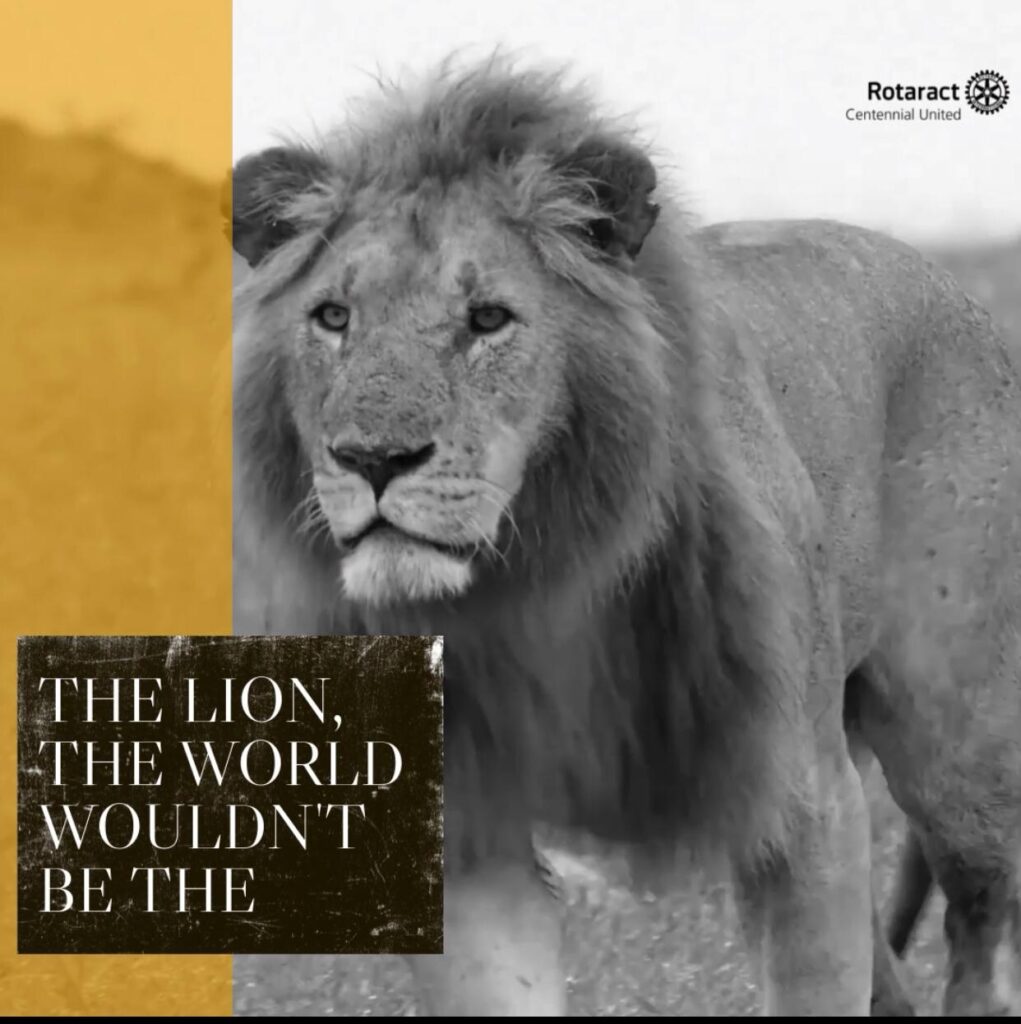save the lion

World Lion Day is celebrated on August 10 of every year to raise awareness about lions and mobilise support for their protection and conservation. Currently, they are listed as endangered by the International Union for Conservation of Nature (IUCN) Red List.
Living in the grasslands, scrub, and open woodlands. The lion is the second-largest cat in the World. It is dwarfed slightly by the tiger, which is closely related and has a very similar body type. Unlike other cats, lions are very social animals. They live in groups, called prides, of around 30 lions. A pride consists of up to three males, a dozen related females, and their young. The size of the pride is determined by the availability of natural resources available in the area. Males and females take on very different roles in the pride. Male lions spend their time guarding their territory and their cubs. At the same time, Female lions are the primary hunters of the group. Lions spend 16-20 hours of the day sleeping or resting.
Lions are the apex predators of their habitat, and checking browsers and grazing populations can help maintain ecosystem balance. Lions also target the weakest herd members, keeping prey populations healthy and robust and indirectly helping control prey population diseases.
Lions have undergone catastrophic declines since the commercialisation of livestock ranching and agriculture and are now only secure in a handful and are on the brink of extinction. Over the years, certain activities have highly impacted the population of the species. They are illegal bushmeat hunting and body part trade, conflict with local people due to livestock depredation, habitat loss and fragmentation, and to a lesser extent by unsustainable trophy hunting. The rise of poaching for body parts is incredibly alarming and might mean the end of many smaller, less well-protected lion populations.
“The beauty of the World is not man-made. It is natures gift to humanity.”
Lion populations have dropped by more than 40% in the last two decades. Unrestricted exploitation of wildlife threatens our biological diversity & causes ecological imbalance. Their conservation also helps protect natural forest areas and habitats, which in turn helps manage biodiversity. If these majestic predators are unprotected, the interrelated ecosystems of various other species and regions will be disrupted. The time has come, and the World needs more than ever to take a step to save this majestic and courageous beast who we referred as the King of the Jungle
